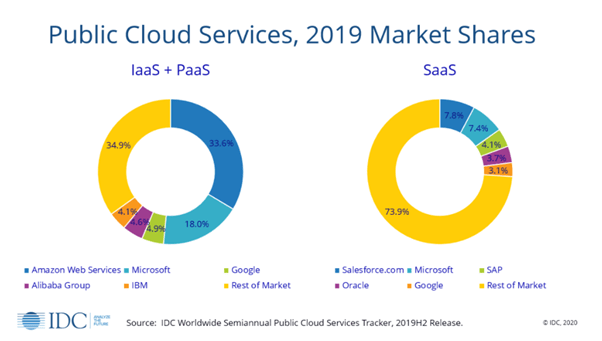Archives: Blog Articles
Description.
Ensure your customer stays with you, with timely delivery of orders
Have you been worried about delivering late to your customer? Or have you received complaints from your customers due to the inconvenience that they had to face since the expected delivery was delayed?
Customers want every order they place to be delivered at the right time, right place with the right quality in the right condition and that is exactly what the distribution businesses should focus on achieving. On-time delivery is perhaps the most important issue customers are concerned about next to the condition of the items. Today, customers are even willing to pay additional amounts for fast deliveries with full transparency from the start to the end of the orders. One of the most serious costs that any business has to pay for late delivery is breaking the trust of the customer which finally leads to great disappointments and loss of brand image result in switching suppliers/brands. Therefore, an efficient delivery/ distribution is required to minimize the bottlenecks and gain and retain loyal customers to succeed in the highly competitive and dynamic market.

On-time delivery of orders are not merely the responsibility of frontline delivery persons in your organization but includes wider scope. Proper raw materials, goods in transit, work in progress management being an important element in inventory management timely replenishment, purchase order management and issue management facilitate efficient delivery. On the other hand, pick, pack, ship operations and sales order management contribute to on-time delivery at a greater scale.
Today, the selection of correct technologically advance ERP solutions are capable of streamlining different processes and functional areas within your distribution enterprise minimizing manual intervention for process alteration to have a standard workflow with minimizing inefficiencies. Also, it would help to adjust to fast-changing dynamic environments and enable efficiently to manage the entire production and supply chain process with ease.
An ERP solution that especially focuses on distribution enterprise would benefit you with industry-specific functionalities and best practices. Warehouse management, inventory & supply chain management, order management are some of such key functionalities that you should look at when you are selecting an ERP along with financial, sales and other support activities if you are in the distribution & logistics industry. Through the automation of these functions, businesses can serve their customers better with shorter delivery times, and hence control costs ensuring a long-term relationship with your client.
A well-established Distribution Management Software that includes efficient inventory and operations management & inventory tracking, customized dashboards for data visualization and KPI realization, automated customer management, field services and documentation, effective AI and Machine learning to automate repetitive cycles with real-time tracking & access to data and many more would add value to your business and help you reach your goals efficiently while satisfying your customers with providing a greater value to your customers too.
Why moving to the cloud is the right decision?
Having managed few data centres myself, I am aware of the troubles we went through when there are power outages, AC failures, when perfectly fine DR scenarios don’t work, when actual disaster hits and so on. IT professionals should love the cloud services.
Then again, you need to have the expertise in general cloud technologies and specific services like AWS (Amazon Web Services), Microsoft Azure and GCP (Google Cloud Platform).
I am an AWS fan so you will see lot of references and terms to AWS resources. However, almost all servers are available with most of the top 5 cloud service providers like AWS, Azure, GCP, IBM and Alibaba.
What is Cloud Computing?
You just have to google above, and you will get tons of references and I am not going to define cloud here. However, the following caught my eye.

What questions come to your mind when thinking about cloud?
Is it secure?
It is difficult to say, all cloud service providers are very secure but major players like AWS, Azure and GCP have maintained very high standards.
Following are some of the compliance accreditations of top three cloud service providers in the world AWS, MS Azure and GCP.
Having looked at these certifications from major bodies like ISO, SOC etc, these companies have given lot of weight for cloud security.
Only a handful of companies will think of getting such accreditations for their own data center and this is due to many factors like, cost and lack of expertise to implement and manage.
AWS
ISO 9001, ISO 27001, ISO 2017, ISO 27018, CSA, PCI DSS level 1, SOC1, SOC2, SOC3…
https://aws.amazon.com/compliance/programs/
MS Azure
ISO 9001, ISO 27001, ISO 2017, ISO 27018, ISO 22301, ISO 20000-1, CSA, PCI DSS level 1, SOC1, SOC2, SOC3…
https://docs.microsoft.com/en-us/azure/compliance/
GCP
ISO/IEC 27001, ISO/IEC 27017, ISO/IEC 27018, ISO/IEC 27701, SOC1, SOC2, SOC3, PCI DSS, CSA STAR, CyberGRX … https://cloud.google.com/security/compliance/offerings#/regions=Global
Having the above accreditations does not mean that cloud services aren’t susceptible to attacks by hackers or groups with malicious intent. They are, and this happens on a regular basis. However, due to the various levels of protection they have, attacks fail.
The following are some of the sample cases.
https://www.bbc.co.uk/news/technology-53093611
https://thehackernews.com/2020/12/microsoft-warns-crowdstrike-of-hackers.html
Is it expensive?
This all depends on the workload you are running and your business model. TCO comparison is a methodology used to calculate and compare costs of running the same workload in the cloud against on-premises.
Basic TCO calculators provided by service providers typically focus on actual costs of procurement, management, maintenance and decommissioning of hardware resources over their useful life (which is typically a 3 or 5 year period). Given the plethora of different hardware configurations available today, it sometimes becomes difficult to know the actual costs and come up with an accurate TCO model that represents the true cost of running your application.
I am hearing from customers that it can be challenging for them to do the right apples-to-apples comparisons between on-premise infrastructure and an infrastructure that is offered as a service. In practice, it is not as simple as just measuring potential hardware expense alongside utility pricing for compute and storage resources. We have noticed that customers struggle to compare the two models especially when they are trying to compare the TCO of a web application scenario that includes compute, storage, network access, load balancing and all the complements of the architecture.
Due to this difficulty in comparison, all top-level cloud service providers have come up with a TCO model that allow you to calculate cost of services in the cloud using exact scenario you are planning to have your workloads running. You can get the benefit of features such as auto scaling, spot instances, capacity reservations to reduce your cost of services in the cloud. Put it this way,
- You have no capital costs.
- You get very high security.
- You can spin up new resources like virtual servers in minutes.
- Go global with services like cloud front.
- No need to spend on data centre related costs like power, cooling, administration costs.
And the list can go on.
The following statistics give you a good indication what is happening around the work. It shows that the demand for the cloud services are increasing.


What happens to my data?
Usually what is in the cloud is your responsibility. Security practices like encryption of data at rest (stored in disks) and data in transit (data sent via emails and between other end points), AV and malware protection and activating a network protection are customer responsibility.
Cloud service providers with the help of third-party service provider have introduced great number of features to enhance cloud capabilities.
In my view you need to make sure that your data is safe and protected, and you should take action without leaving it for others to look after them. This is true whether you have your data in the cloud or on-premises data centre.
It is very easy to activate DR and BCP features like geo-redundancy backups using inbuilt functionalities of cloud services. If you are using AWS S3 for your data, you can activate replication services to store a copy in another location within minutes.
Having that balance in anything you do is important; it could be your working life or personal life.
So, I would say look at a hybrid solution where some services are running in the cloud and some on-premises to start with. You may realise that some services can’t go to cloud at all, so you keep them on-premises.
So, my personal view is you should start your journey to cloud now. This does not mean you should move all your services to cloud in one go but you should start.
Inventory management for an agile distribution process
In todays’ dynamic business environment, one common problem for many companies those who involve in manufacturing, warehousing & logistic, wholesale distribution, transportation etc. is the challenge in meeting market demand quickly and responsively. On the other hand, the shorter the product life cycles are, the faster should be inventory response time. Moreover, if not for efficient inventory management, companies may face the risk of products being unsold that will increase inventory costs eventually having a detrimental effect on profit margins. Therefore, efficient inventory management is vital in having a competitive edge in the competitive business landscape.
Thus, a company must adopt a fully-fledged agile inventory management system to face the changes in the dynamic business environment and overcome the challenges confidently as it will provide your customer with a quality experience. An agile inventory management system helps companies to track, organise, issue, and manage inventory with improved speed, accuracy, and transparency for overall operational excellence.
As your warehousing or production scale-up, you might need better control of your materials in the warehouse, materials in transit etc. with having full control of it. A need for better management of inventory can be fulfilled by having a scalable ERP solution that facilitates efficient sourcing, inventory tracking, accurate & efficient inventory audits, efficient document management & inventory issuing, fast & unbiased reporting with a 360° view of inventory. Having an ERP solution in your distribution company will help to have a smooth continuation of workflow with a great degree of reliance to face the unseen business challenges.
Also, the ERP solution will help you to continue your business operations by planning your inventory to be responsive to shifts in consumer demand and market supply. Also, it helps avoid unnecessary costs in inventory wastage while help in maintaining an optimum level of inventory to avoiding quick purchases at high costs and maintain the quality of materials that purchase.
Having an ERP system for your distribution company also helps you to manage your inventory at different locations, business operations in multiple warehouses or different countries/ regions with real-time visibility of inventory and a quick glimpse of your overall business performance. On the other hand, now you can make your routine & time taking processes assisted with Artificial Intelligence (AI) and Machine Learning (ML) to simplify and make them efficient.
Accordingly, stationing a well-defined inventory management system would be a competitive edge for your company as it will be a long-term investment that you make for an impregnable business operation.
Do not get Trapped in your Own ERP
Enterprise Resource Planning (ERP) is a long and comprehensive process that involve several steps and procedures. Even one missing step or element can invalidate the whole project, leading to a massive waste of time and resources.
Traditional methods of forecasting, purchasing and inventory handling are common obstacles to innovative solutions. Creating awareness of options amongst consumers and suppliers are vital to their spread and acceptance.
Oftentimes, companies will not get the best industry practices as they assume that traditional systems are the best way forward. Knowing the business is not beneficial because companies lose the ability to receive objective and diverse business models which are created by outside industry professionals. It is therefore, in a company’s best interest to outsource their ERP system.
Furthermore, having an in-house ERP system can lead to many challenges. It is likely that the understanding of an ERP rests solely with the creator. This can lead to many complications should the creator no longer be part of the company. Moreover, creating and maintaining an ERP system is costly and difficult and often companies will benefit from an external provider that can cope with the demand of day-to-day operations, this is also a cost-effective solution.
It is strongly encouraged that you evaluate the costs and benefits of investing in an in-house ERP system while evaluating alternatives as it is going to be a long-term investment of your business that can drive the success of overall operations.
Rukshan B
How would you verify if your ERP is scalable?
An ERP is exceptionally known to be the DNA of a business as it adds immense value and competitive advantage by streamlining business functions, improving visibility, productivity and hence increasing customer satisfaction while reducing operational costs.
But the real question is, is your ERP scalable as your business grows and can it adapt to the changing needs and demands of your business? Let’s find out!
Below are four forms of scalability that you should have in your ERP Solution. Especially if you are looking for a new implementation or trying to move into a new system, confirming the availability below would give you confidence that you are choosing a flexible solution that aligns with your future plans.
1. Adaptability
- Ability to process a large volume of data and the availability of scalable hosting options.
An ERP should have the ability to process large volumes of data as it will be the place where all your organisation’s valuable information is processed and stored. Meantime, flexible data hosting options that allow you to shift on-premises to cloud or vice versa based on your requirement and the ability to expand the capacity are vital.
- Ability to adopt functions/features even after you go-live based on future requirements.
The ability to adopt new and advanced features to keep up with technology even after going live is a must-have capability in an ERP solution. On the other hand, as and when a business grows, they will require additional functionalities and features that they haven’t utilised in the previous implementation. Periodical updates with enhanced features are one way to stay up to date with the latest technologies and capabilities.
- Ability to expand without slowing down the current processes.
Adding new modules and functions should not slow down the current business processes. Also, the time it takes to process information in an ERP should not increase.
- Adoptability of ERP system among multiple industry verticals.
A business needs to adopt a system that fits well with different micro verticals of the particular industry. Because most companies have future vertical and horizontal expansion goals, having a system adaptable across different micro verticals is important. On the other hand, minor configurations save money and time in the short and long run. Also, the modules that are available to integrate should be a vital selection criteria. Because getting all/ most of the solutions from one vendor always provides you with a great deal of synchronisation, fast implementation, cost-benefit, and many other advantages.
- Ability to connect to other systems with minimum effort.
An ERP system that is connectable to other systems, modules of the same vendor or a different vendor make a good choice for you. Because there can be certain functional areas that are sensitive to your company, and you want to migrate your all data to the new system only after you are confident with the system. Or else, a particular system is profitable in terms of the financial consideration or the depth of functionalities it offers you. So, if you have such concerns, you must consider how far your selected ERP is connectable to other software and can work in harmony.
2. Global Management
A fully scalable ERP is an easy breakthrough that promotes globalisation while allowing you to expand your business fearlessly across borders with supporting customisation. Below are some of the global management enablers.
- Multi-company, multi-country, multi-site, multi-currency, and multi-language capabilities.
- Ability to meet country-specific requirements/ functionalities.
- 24 hours support service during 365 days of the year.
3. Employee and User Expansion
With the increased growth of your company, it is obvious that the number of tasks and operations will rise directly proportional to the number of employees required, which will feed in more data to the systems. Thus, the ERP system should handle drastic changes in the workforce without halting or slowing down any existing processes. On the other hand, a sound ERP system should allow you to increase mobile or work-specific users (identified by shift/machines).
4. Cloud Hosting
Last but not least, your current ERP should provide you with the option of hosting your on-premises solution in the cloud since it’s more reliable, scalable and cost-effective. In contrast, scaling your on-premises solutions will be a huge investment and requires additional hardware space. Moreover, cloud ERP gifts you the opportunity of changing the subscription depending on your requirement without paying unreasonably and whenever you want.
On the other hand, you should see the downtime your ERP solution partner offers when you change your data hosting method. Because time is precious for any company, a one-hour additional downtime can cause you a surprising loss!

So is your question answered? All businesses evolve, adding more capabilities while growing to have their chance in the untapped markets which too are rapidly changing as new trends are introduced. Consequently, your ERP should not be stagnant, rather futuristic and easily customisable to adapt to increasing growth levels, responding better to changes in the market and delivering a competitive edge. On the other hand, selecting an industry-specific ERP solution provides many benefits as it uses speciality knowledge in developing systems to enable industry-specific needs and workflows.
Think smart and switch to a fully scalable ERP system and digitally transform your company!
8 Reasons why you should Outsource IFS Support from Platned
- Highly-skilled functional and technical consultants at your disposal: Platned always have a combination of functional and technical consultants available around the clock. This assists you to solve any issues in quick time saving you money and valuable time you can allocate for the business.
- Support packages designed to cater individual client requirements: All companies have a customized method of operations and Platned provides a customized support package to suit the size and type of operations you need.
- 24/7 global support: Platned has a 24/7 support team located in UK and Sri Lanka to assist you anytime of the day to give you the flexibility to resolve issues.
- Feasibility of Changing the IFS Requirements: IFS requirements in the company is likely to change over time due to competition and technology developments. Having an on-call service desk helps you to change or amend your requirements quickly.
- Compliance of service level agreements: Platned’s compliance of service level agreement gives the assurance that all incidents received through our helpdesk will be completed on time.
- The ability to monitor the status of the cases: Although the support is outsourced by the client, the client will be able to log into the Servicedesk to know the current status of all their cases.
- Detailed reporting: A detailed report on the total number of cases and hours spent on each case will be provided on request, to client ensuring that all cases are being monitored on a timely and accurate basis.
- Well-dedicated customer service team: Platned provides a dedicated customer service team to provide you with a support second to none. You can always rely on them to clarify your queries against any tickets handled by the team.

